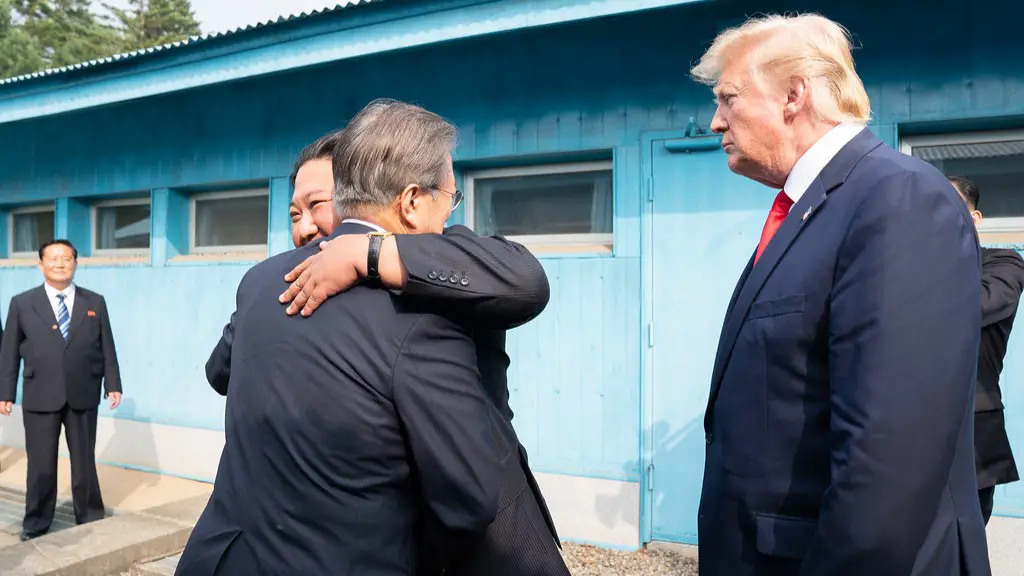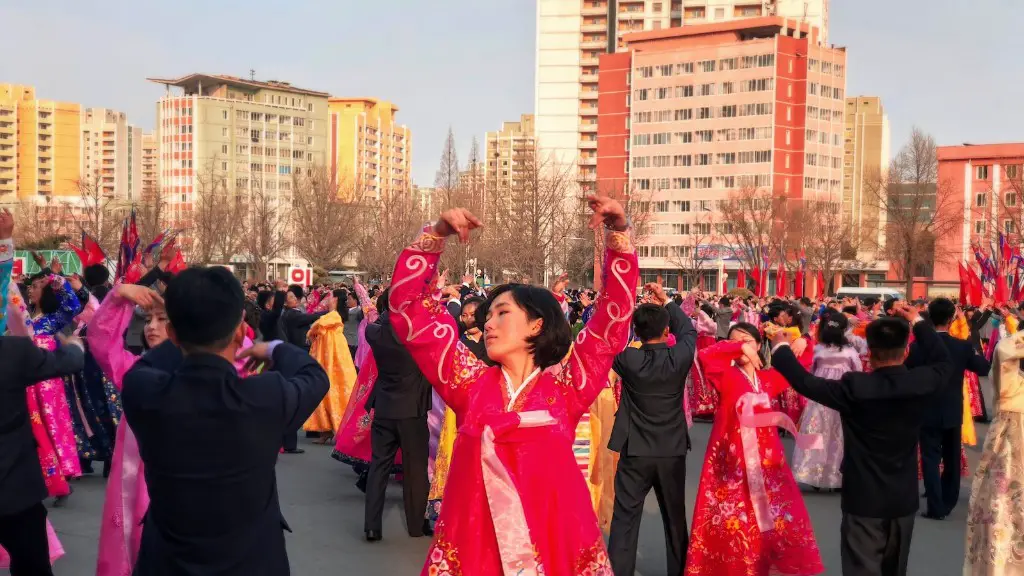As tension continues between the United States and North Korea, some have proposed a “Big Bargain” to reduce the risk of nuclear war. This proposal would involve a broad set of diplomatic, economic, and military commitments by both sides, in exchange for North Korea stopping its nuclear program and improving ties with the United States. It is not an easy solution, but it could bring a more secure future for the Korean Peninsula.
The idea of a Grand Bargain with North Korea dates back to 2003 when the six-nation talks (South Korea, China, Japan, Russia, and the United States) were initiated. Since then, North Korea has made some progress on denuclearization, but the process has been slow and many experts believe that more needs to be done to achieve real progress.
The Grand Bargain would involve far more than just denuclearization. It would require North Korea to take steps to improve its relationship with the United States and its allies, to open up its economy and improve its human rights record. In return, the United States and other countries would provide economic and diplomatic incentives and a guarantee of security to the North Korean government.
The Grand Bargain is a long-term process, and it is not without risks. For example, there is no guarantee that North Korea will comply with all of its commitments, and there is a risk of a breakdown in negotiations. There is also the possibility of North Korea resuming its nuclear program. Many experts also cautioned that even if a Grand Bargain is reached, it will take years to implement, and the process could be disrupted by North Korean political instability or other external events.
However, experts warn that the risks of a breakdown in negotiations are far greater than the risks associated with a Grand Bargain. If North Korea continues its nuclear program unchecked, the risk of a nuclear conflict will remain. The Grand Bargain offers a way to reduce this risk, while at the same time improving regional security and encouraging economic development in North Korea.
At present, the chances of a Grand Bargain with North Korea are slim. North Korea has continued to push back against U.S. efforts to negotiate, and international sanctions have put a strain on its economy. However, experts believe that if both sides are willing to compromise and be flexible, there is still an opportunity for a negotiated solution.
Trust Building
Trust between the two sides is key for a Grand Bargain, but building trust can be difficult. The United States should work with China, South Korea, and other countries in the region to encourage North Korea to take steps to reduce tensions and build mutual trust. This could include North Korea engaging in diplomatic dialogue, allowing international inspections, and taking concrete steps toward denuclearization.
In addition, the United States should continue to explore diplomatic options to build trust and take steps to address North Korea’s security concerns. This could involve offering incentives, such as security guarantees or economic assistance, in exchange for North Korea committing to denuclearization.
At the same time, the United States should also continue to maintain economic sanctions on North Korea and keep pressure on the regime to reach an agreement. This pressure should be balanced with an effort to reach out to the North Korean people, with the ultimate goal of making them feel more secure and restoring trust in the region’s stability.
The Grand Bargain would also require a commitment from North Korea to open up its economy. North Korea should be encouraged to take steps to liberalize its economy and create conditions for economic growth and development. This could involve allowing foreign investment and allowing access to international markets. North Korea should also be encouraged to take steps to improve its human rights record, including allowing freedom of speech and assembly.
Incentives
For North Korea to agree to a Grand Bargain, the United States and other countries will need to make concrete commitments. These could include a security guarantee, economic assistance, and access to foreign markets. It is difficult to assess the exact significance of these commitments, but they should be enough that they would make North Korean officials comfortable with the agreement.
The economic incentives should also be put in place in a way that encourages development and allows North Korea the opportunity to benefit from economic growth. The United States and other countries should provide grants and loans to North Korea to encourage investment and create jobs. The loans should also be structured in a way that reduces the risk of default.
Finally, the international community should make commitments to provide humanitarian aid to North Korea. This could involve providing food, medicine, and other essential supplies. The aid should be provided in a way that is transparent and ensures that it goes to the people who need it most.
Political Dynamics
One of the main challenges of a Grand Bargain is the political dynamics between the United States and North Korea. Both sides have been highly mistrustful of one another, and it is essential that they can reach an agreement that respects the interests of both parties. For this to happen, there needs to be a willingness on both sides to make compromises and show flexibility in negotiations.
Both sides should also be open to considering new ideas and being creative in their negotiations. So far, the two sides have been unable to reach an agreement, in part because of the rigid stances of both sides. A Grand Bargain will require both sides to think outside the box and be willing to consider new solutions. This could involve the United States allowing North Korea to maintain its nuclear program and North Korea agreeing to reduce its military presence on the Korean Peninsula, among other scenarios.
Finally, the United States should take steps to reassure North Korea that it is not interested in regime change. This could involve taking steps to reduce military exercises in the region and announcing that the United States is open to a peaceful resolution to the issues between the two countries.
International Cooperation
The process of negotiating a Grand Bargain with North Korea is likely to be long and complicated, making it essential that there is international cooperation and support. China, South Korea, Japan, and other countries in the region must all be committed to working together to reach an agreement. This could involve providing financial and diplomatic support, increasing pressure on North Korea, and engaging in diplomatic dialogue.
The United Nations should also be involved in the negotiations. The United Nations could provide much-needed additional resources to help facilitate the negotiations, as well as provide impartial mediation if needed. The United Nations could also help to ensure that any final agreement is adhered to by all parties.
Finally, the international community should also be prepared to offer economic and security assistance to North Korea in the event that a Grand Bargain is reached. This could include providing economic aid, security guarantees, and access to international markets. It is important that the international community is prepared to provide support to North Korea if a deal is reached, as this could help to ensure its stability and prosperity.
Developing a Plan
Reaching a Grand Bargain with North Korea remains a formidable challenge. It will require a great deal of diplomatic effort and political will. However, with the right incentives and international cooperation, there is still a chance for a successful outcome.
To move forward, the United States and North Korea should agree to a framework for negotiations. This framework should include a timeline and clear commitments from both sides. It should also be flexible enough to allow for continued dialogue and address any issues that may arise.
The United States and other countries should remain engaged in diplomatic efforts and support regional efforts to promote security and prosperity on the Korean Peninsula. As negotiations take place, it is essential that the United States and its allies remain unified in pursuit of a peaceful solution.
In the end, a successful Grand Bargain with North Korea is not just desirable, it is essential. A Grand Bargain is the only way to ensure a more secure future for the region and provide a pathway for the North Korean people to achieve peace and prosperity.





